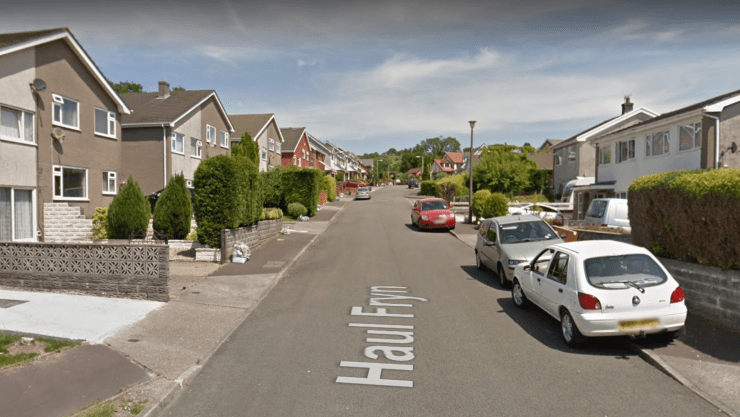Birchgrove
Birchgrove street has fastest broadband in UK according to latest data


Haul Fryn in Birchgrove, Swansea has the fastest broadband in the UK according to comparison site uSwitch.com
Households in Haul Fryn had an average of 882Mbps Download speed over the past year.
At that speed it would take around a minute to download a two-hour HD film, or a mere 24 seconds to download a 45-minute HD TV show.
Second and third place went to Grange Road, Ilford and Dalesgate Close, Littleover, Derby, both of which had average broadband speeds of over 850Mbps.
While Haul Fryn is the clear winner, it’s worth highlighting that last year, the top three fastest streets maxed out at 639Mbps, 568Mbps and 563Mbps. That’s a staggering jump in the fastest speeds available in well-connected regions of the UK.
Llys Tripp in Gwaelod-y-Garth, Cardiff, has Wales’ slowest broadband speed, only reaching 0.34Mbps on average in the speed tests taken by its residents. It’s also one of the ten slowest streets in the whole of the UK.

This year, the street with the slowest broadband speed is Wistaston Road in Crewe, where residents are somehow managing to get by with average broadband speeds of just 0.25Mbps.
In a time when having a strong broadband connection is more vital than ever, speeds at this level are completely unworkable for any household. At this speed, it would take the unfortunate residents of Wistaston Road over two-and-a-half days to download a two-hour HD film, and almost 24 hours to download a 45-minute HD TV show.
Sluggish-paced Wistaston Road is a staggering 3,567 times slower than Haul Fryn, where average speeds reached 882.03Mbps over the past year. The difference between the fastest and slowest is astonishing, and has increased dramatically since 2019, when the worst street was only 830 times slower than the fastest. This suggests that the UK’s digital divide is growing with the rollout of full fibre broadband (FTTP) that has now brought ultrafast speeds to 24% of the country.
Ernest Doku, broadband expert at Uswitch.com, says: “Britain’s broadband keeps getting quicker every year, but parts of the country continue to be left behind.
“Residents of this year’s fastest street, Haul Fryn, could download a film in 47 seconds – where it would take those living in Wistaston Road more than 48 hours to do the same thing.
“At a time when so many of us rely on our broadband for work, streaming films and TV, and gaming, it’s hard to imagine how frustrating such a slow connection must be.”
Faster broadband is closer than you think
For many, just knowing what broadband connections are available in your area could save you hours of internet woes. Of the ten slowest streets, nine of them can access much faster speeds of at least 30Mbps, with some even being able to get the ultrafast speeds seen in the top ten *fastest* UK streets.
It’s another sign that many people simply aren’t aware that they can actually be on a much better broadband speed for their household. This can unlock a range of benefits, like better productivity when working from home, multiple family members being able to stream and game at the same time, and improved picture quality on the things you watch.
If all of these streets can get a much better internet connection than what they’re currently on, there’s a very good chance you could also be enjoying much faster speeds than your current connection. So if you’re looking for a faster service, compare broadband deals with Uswitch to see what speeds you could be getting.
(Lead image: Google Maps)
-

 Gowerton6 days ago
Gowerton6 days agoNew Greggs store opens in Gowerton creating a dozen jobs
-

 Gowerton6 days ago
Gowerton6 days agoGowerton school gets financial boost from local housebuilder
-

 Mumbles2 days ago
Mumbles2 days agoNew Mumbles seawall takes shape as sea defence construction work continues
-

 Animals6 days ago
Animals6 days agoWalkies! Gower vets mark twentieth anniversary with twenty kilometre fundraiser
-

 Football5 days ago
Football5 days agoTributes pour in for former Swansea City and Wales legend Leighton James who has died aged 71
-

 Police and Crime3 days ago
Police and Crime3 days agoSerial dine and dashers ‘devastate’ newly opened Swansea Italian restaurant after leaving without paying huge bill
-

 Cardiff Airport6 days ago
Cardiff Airport6 days agoLow cost airline to launch 6-week Autumn route from Cardiff to Iceland and onwards to USA and Canada
-

 Education7 days ago
Education7 days agoWelsh language drive sees school go for gold

























